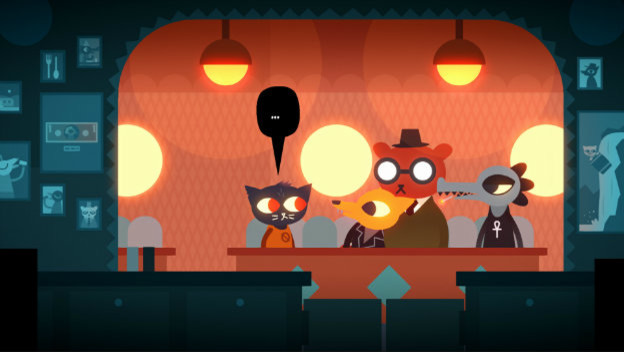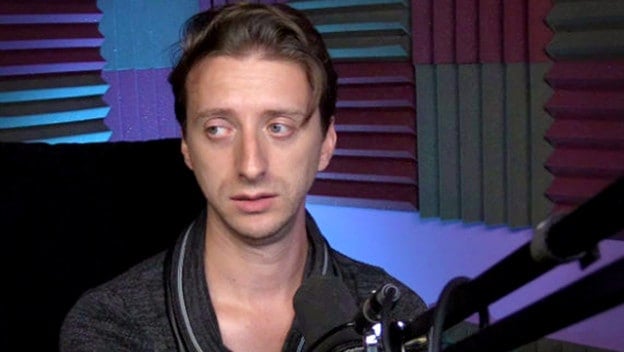A hot topic right on social media, both in and outside of gaming, is “cancel culture.” If you don’t spend a lot of time on Twitter, you might be wondering what the hell that means. Essentially, being “canceled” is what happens when a person (usually a person with some degree of celebrity) is outed for some sort of misbehavior, which usually means online dogpiling from ex-fans and others. This has happened in all sorts of online social circles, but a whole bunch of examples have taken place in the gaming community lately. While you might be raising your eyebrows at the concept at face value, it’s actually kind of a good thing.
A lot of “cancel culture” is frankly a smokescreen. That’s the most important part here. This sort of online discourse is inherently tied to various kinds of politics, and it typically is executed by people on the left. At least, in the way that people who generally complain about “cancel culture” talk about it. Usually, that’s combined with people making jokes about infighting within the political left, comments about how it leads to further online radicalization, and so on and so forth. But, outside of a few high profile cases, there aren’t actually real “cancellations” in the way right-leaning reactionaries suggest.
One such high profile example, the king of them all, is Harvey Weinstein. That has nothing to do with video games, but it’s the easiest example to point to. Weinstein was outed as a sexual predator, then subsequently removed from his own company and tried in court. Now, he has more or less vanished from the public eye and claims to be going to therapy and stuff. Who knows how that will turn out.
Meanwhile, gaming-adjacent personalities have been under fire. Let’s talk about Jared “ProJared” Knabenbauer, for example. ProJared is a YouTube personality who makes silly videos about games, which totally sets him apart from his peers. (That was sarcasm, if you didn’t catch it.) Anyway, after separating from his wife, or rather his ex-wife, she revealed why. (Hint: It involved infidelity.) ProJared was quickly “canceled,” with most people taking his wife’s side, his subscriber count dropping, and a brief disappearance from social media. But, after a while, ProJared came back, claimed he didn’t do anything wrong, and still has his channel and a rabid fanbase willing to go to bat for him on various platforms.
He faced no real consequences, and he even made a deal with his new partner to make a snarky “canceled” t-shirt and sell it. Meanwhile, tons of evidence came out that in addition to his marriage drama, he was also allegedly soliciting nudes from fans (some of whom turned out to be minors at the time). The details are all still fuzzy and nothing has gone to any sort of legal hearing, but all this dirty laundry is floating out there. Despite being “canceled,” ProJared still has a career.

There are other examples as well. Two personalities who used to work for game media outlet Polygon were outed as using their cultural influence in attempts to sexually prey on their fanbase (which they didn’t entirely seem to be doing deliberately, but that’s a whole other can of worms and intent doesn’t magically make misconduct better). They were both called out via social media, and both of them ended up losing their jobs. These were successful “cancellations,” but there’s an important detail here. Both of these people were accused of (and subsequently admitted to) unacceptable behavior that hurt people. By calling them out publicly for behavior that is nearly impossible to punish in the court system, they were removed from the positions of power they were abusing.
Recently, there was an unfortunate chain of events along these same lines that ended with an accused abuser in the games industry falling victim to suicide. Their accuser ended up needing to leave social media due to that, as many suggested it was their fault that happened. But it wasn’t, and they did the right thing in finally calling him out after years of quietly suffering. Victims aren’t responsible for the actions of their abusers after they get caught. It’s sad, but that’s all it is.
“Cancel culture” is really just a reactionary label created by folks who don’t understand things like abusing power dynamics, and people who are upset that celebrities who made things they liked sometimes face consequences for their actions. Nobody would need to be “canceled” if they didn’t do horrible things and hurt people! Gaming, in particular, is such a tight-knit, insular community that predatory behavior often gets pushed under rugs or protected by people with comparable influence and power. Without social media callouts and the people brave enough to perform them, there would probably have been much less awareness of the individuals involved and more victims. Accountability is important and, in a space like gaming that’s supposed to be about having fun, it should be mandatory.
